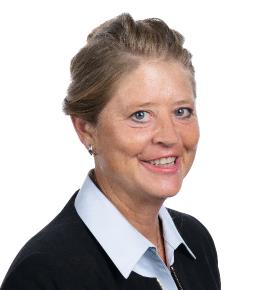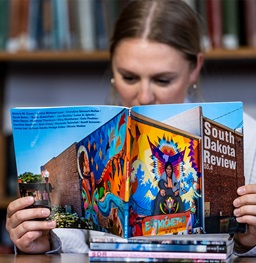USD is home to more than 170 student organizations, including several that are housed in the Department of English. You may be interested in the Vermillion Literary Project or Alpha Mu Phi to make friends, develop new skills and explore your interests.
Alpha Mu Phi
Alpha Mu Phi is USD's local Sigma Tau Delta chapter. This organization's central purpose is to confer distinction upon students of the English language and literature in undergraduate, graduate and professional studies. Sigma Tau Delta also recognizes the accomplishments of professional writers who have contributed to the fields of language and literature.
Join Now
Vermillion Literary Project
The Vermillion Literary Project is an award-winning student organization that publishes a literary magazine and promotes all sorts of literary events, for both the university community and the general public.
Join Now
Graduate & Professional Student Association (GPSA)
Join your fellow graduate and professional students at USD. We aim to build a sense of community between graduate and professional students. Build your resume, network with others and gain experience and the unique opportunity to represent the interests of graduate students to the greater campus and community.
Join Now

















